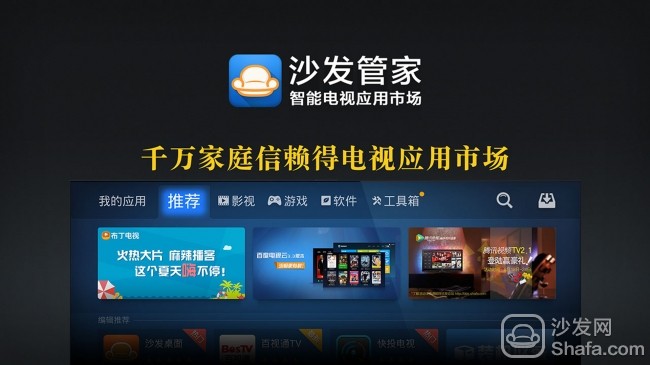2014 was the tenth anniversary of China's Internet audio-visual industry. Internet video and audio has become the most basic online service for Internet users. In the face of the Internet invasion, a number of TV stations headed by Hunan Satellite TV launched an exclusive broadcast strategy in 2014, and premium copyrighted content will no longer be distributed to other video sites. The broadcasting strategy of the TV station undoubtedly puts a certain amount of competitive pressure on the video website. In addition, the industry’s increasingly fierce “turbulent drama†boom, major video sites have begun to invest heavily in “homebrewâ€, hoping to increase the production of high-quality content. And control.

TV station changed "distribution" to "single broadcast"
According to the latest data from the China Internet Audiovisual Industry Report, the total output value of China's Internet audiovisual industry is expected to reach 37.84 billion yuan in 2014, continuing to maintain an annual growth rate of nearly 50%; of which, online video as the core business of the Internet audio-visual industry is almost half of the market. The year-on-year increase of 44% was close to 20 billion yuan.
In the domestic online video industry, major video sites have always purchased copyrighted content from content providers such as television stations and film and television production organizations. Due to fierce competition, the copyright price of film and television works has skyrocketed. For instance, iQiyi spent a total of RMB 200 million to buy online rights for 5 variety shows including Hunan Satellite TV's “Where Did Dads Go?†in 2014.
However, starting in 2014, in the face of the rapid growth of video websites, some TV stations began to use their own premium content only for their own websites and no longer sell them to other video sites. In May 2014, Hunan TV announced that it had a complete intellectual property program, which will be independently broadcasted by its “Mango TV†and will not be distributed on the Internet copyright to create its own Internet video platform.
Immediately thereafter, Anhui Satellite TV announced the termination of the second-quarter copyright transfer contract for "I'm Goes 2" and was considered by the industry as a follow-up action. In addition, CCTV also said that this year's World Cup new media copyright is no longer distributed, but only used in the CNTV platform. This series of actions made "single broadcast" become the hottest keyword in China's online video industry in 2014.
"We spent 2 billion yuan to buy the Hunan Satellite TV 5th program. As a result, they awakened." In response to the broadcast strategy of the TV station, at the "China Network Audiovisual Industry Forum 2014" held recently, Isuqi CEO Gong Yuru said. He said that Hunan Satellite TV's variety show has a high share in the country, and the video site used to be “borrowing chickens to lay eggsâ€. However, starting from January 1, next year, “chicken†is not found.
Video website "save money" homemade
The broadcasting strategy of TV stations will undoubtedly pose certain competitive pressure on major video websites. Faced with countermeasures such as television stations, the government has stepped up its efforts to increase self-control content, especially for self-made dramas. This has become the choice of major video sites.
“Some TV stations think that it is impossible to block video sites without giving content to video sites. This will only force video sites to create content and improve the quality of homemade content,†said Yang Weidong, president of Tudou.com. According to its introduction, at present, some video sites have invested as much as 5 million yuan in a single set of self-made videos, which is not lost in the single set of traditional TV dramas.
As a result, self-made plays have become a major focus of competition in the current online video industry, and major video sites have increased investment in home-made dramas. For example, Sohu Video defines 2014 as the first year of the self-made drama; Youku Potato Group has fully invested in the outsourcing of programs in 2014, and has invested more than RMB 300 million to develop online self-control.
Luo Jianhui, director of the Network Audiovisual Program Management Division of the State Press, Publication, Radio, Film and Television Bureau, said in Shanghai recently that the number of self-produced programs on the Internet has increased rapidly this year. As of the end of November this year, in the information recording of network news programs of the State Press, Publication, Radio, Film and Television Bureau, there were 396 network dramas registered for registration and more than 2,000 microfilms, and the number was growing strongly.
According to industry insiders, for video websites, homemade content is more conducive to strengthening the brand influence and user preference of online video companies. In 2015, self-control strategies that focus on the needs of Internet users will continue to be an important force for video vendors. With the development efforts of various mainstream video websites in the area of ​​self-control, more high-quality and homemade content will be born in the future, which will also become an important driving force for the growth of online video business revenue in the future.
Network video competition still "content is king"
“At present, the production of online audiovisual and original programs is prosperous, and the simple handling of traditional media content can no longer meet the demand of online audiovisual users for featured content.†Luo Jianhui said that although the overall quality has improved in the online audiovisual field compared to the past, The overall quality is still relatively low, and we need to continue to improve the quality of content and create quality content.
According to Gong Yu, originality capabilities, especially those that meet the characteristics of the Internet industry, will become the core competitiveness of the online video industry. The video industry needs to use Internet genes to create original content that meets mainstream values. In recent years, network self-control is gradually getting rid of sloppy production, and has the impression of low-cost production, while the video industry has its unique advantages in content production investment and quality improvement.
Although homemade content has become a major development focus for the industry, it is not easy for video sites. Liu Dele, president of Youku Tudou Group, said that for major video sites, compared with traditional film and television production agencies, their genes are relatively lacking in the core elements of producing high-quality, high-impact content. How the team builds, how to create innovative organizations, how to root in the Internet and Chinese culture to find out about vitality, and make influential programs are all issues that current video websites need to consider and improve.
Experts believe that with the sudden emergence of content created by the Internet, in the near future, Internet users may no longer have the distinction between a cyber drama and a TV drama. “The competition in the online video industry has entered the cultural and ecological competition, and it is no longer just the competition of the broadcast platform,†Yang Weidong said. In the new era of network audiovisual, users no longer have the concept of traditional media and new media, but will choose More and better content sources.
Recommended installation sofa butler Download: http://app.shafa.com/
